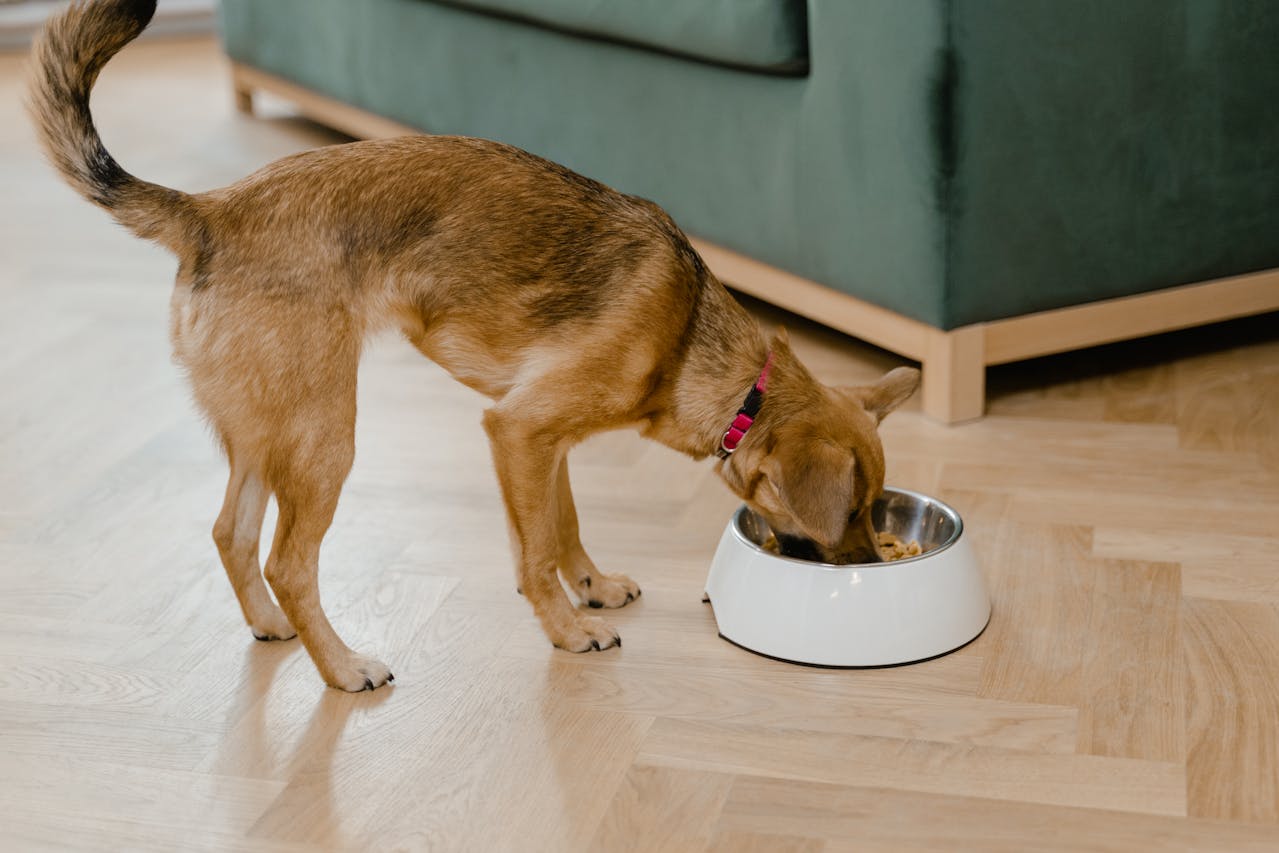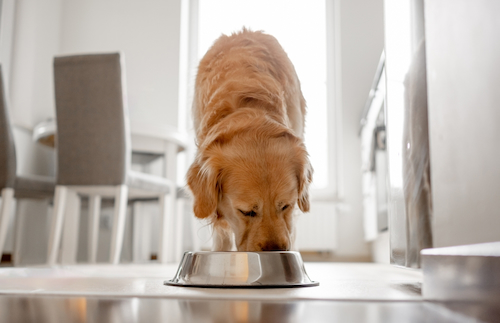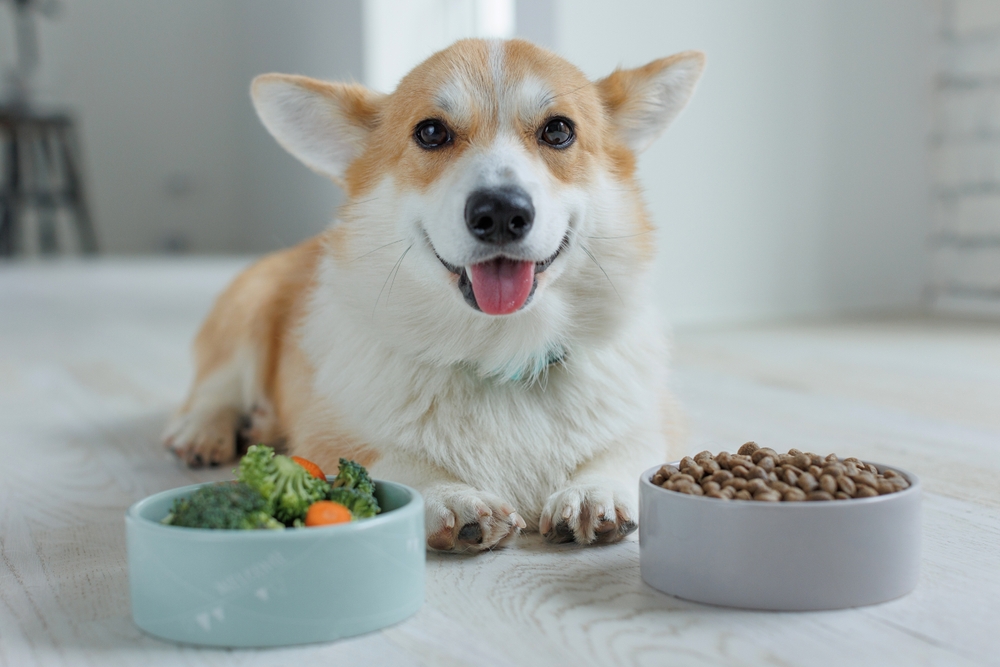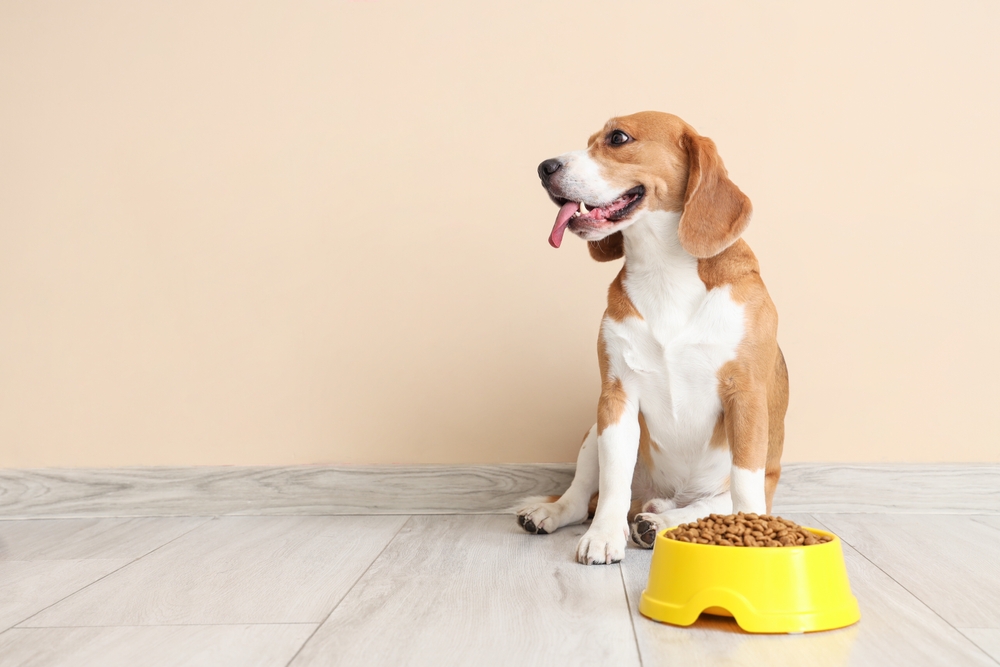Dog Gut Health: What It Is and Why It Matters
by Ysolt Usigan
Updated on September 26, 2025

As a pet parent, feeding your dog a healthy diet is a top priority. But deciding what to put in your dog’s belly is only part of the equation. Research on dog gut health shows that what’s in your dog’s belly — or their gut microbiome — can impact how much nutritional benefit they get from their diet.
All featured products are chosen at the discretion of the Vetstreet editorial team and do not reflect a direct endorsement by the author. However, Vetstreet may make a small affiliate commission if you click through and make a purchase.
That has many pet parents searching for ways to support their dog’s gut health through diet, supplements, or a combination of both. For example, Purina ONE +Plus Digestive Health dog food combines high-quality ingredients with natural probiotics in a highly digestible formula designed to promote digestive wellness.
“Gut health” has become a popular buzzword in recent years. But if you’re unclear what the buzz is about (and, more importantly, what it means for your dog), here’s a helpful overview with insight from the pros.
What Is Dog Gut Health?
Dog gut health is essential for good digestion. But it’s so much bigger than that. A healthy gut refers to the balance of trillions of microorganisms in your dog’s digestive tract, known as the microbiome. This bustling ecosystem of bacteria, viruses, and fungi can impact your dog’s physical health, mental health, appearance, immunity, and more.
While we typically think about bacteria and viruses as health threats, when it comes to gut health, these microorganisms can play a positive role. In proper balance, they contribute to digestion, immune system function, vitamin production, and even the regulation of mood and behavior.
Essentially, a healthy gut microbiome is wonderfully diverse and contains a wide range of microorganisms that work together to keep your dog healthy. Maintaining this balance is vital, says Dr. Alejandro Caos, DVM, a veterinarian with The Vets. It ensures efficient digestion, wards off disease-causing pathogens, and supports a robust immune system.
You’re probably wondering about the health of your own dog’s microbiome right now. According to Caos, these are important signs of good gut health in dogs:
- Normal stool consistency: A healthy dog will typically have well-formed, moist, and easy-to-pass stools. The stools should not be excessively hard, dry, loose, or watery.
- Regular bowel movements: Dogs have individual variations in their bowel habits, but a healthy dog should have regular and predictable bowel movements. Factors such as age, diet, and activity level may affect the frequency, but most dogs generally have one to two bowel movements per day.
- No sign of gastrointestinal distress: A dog with healthy digestion will not show signs of discomfort or pain during or after eating. They should not exhibit behaviors like excessive gas, bloating, vomiting, or signs of abdominal discomfort.
- Consistent appetite: A healthy dog will have a consistent and healthy appetite. They will show interest in their food and eat it willingly without any aversion or significant changes in their eating patterns.
- Adequate nutrient absorption: Healthy digestion allows for efficient absorption of nutrients from the food a dog consumes. This supports their overall growth, development, and maintenance of optimal body condition.
How Dog Gut Health Can Affect a Dog’s Overall Health

The gut is often referred to as the “second brain,” highlighting its role in many important bodily functions beyond digestion.
Poor gut health can lead to various issues, including:
- Weight gain in dogs
- Problems with skin and coat health
- Dog allergies
- Changes in a dog’s mood or behavior
Dr. Kathryn Rosalie Dench, a veterinary surgeon, adviser, and writer at GentleDog Trainers, emphasizes the direct correlation between the gut microbiome and many aspects of health.
“A dog’s gut health can significantly impact their physical and mental well-being,” Dench says. “A healthy gut supports proper digestion, absorption of nutrients, and elimination of waste, contributing to overall physical health.”
“It can also influence the immune system, as the gut is a key player in immune function,” Dench notes. “Poor gut health can weaken the immune system, making dogs more susceptible to infections and other health issues.”
Moreover, a healthy gut can enhance brain health, affecting behavior and mood. “Research suggests a connection between the gut and the brain, known as the gut-brain axis,” Dench adds. “A healthy gut can positively influence a dog’s mental well-being by promoting balanced neurotransmitter production and reducing inflammation in the body.”
Signs of Poor Dog Gut Health
So how do you know if your dog may be suffering from poor gut health? Dench says obvious signs include diarrhea, chronic or recurrent stomach issues, excessive flatulence, and vomiting. However, many symptoms may be easy to miss because they may not seem related to digestion.
To recognize poor gut health in your pup, keep an eye out for any of the following symptoms:
Gastrointestinal issues: These are the most apparent signs of poor gut health. If your dog is experiencing frequent diarrhea, constipation, bloating, or vomiting, it could indicate an imbalance in their gut microbiome.
Bad breath or excessive drooling: While bad breath can be linked to dental issues, it can also signal gastrointestinal problems. Similarly, excessive drooling can be a sign of nausea or other digestive problems.
Changes in appetite: If your dog is suddenly uninterested in their food or is eating significantly less than usual, it could be due to a gut health issue. On the other hand, an increase in appetite can also signal problems, particularly if paired with weight loss.
Weight changes: Unexplained weight loss or gain can be a sign of poor gut health. If your dog is eating normally but losing or gaining weight, it might indicate an issue with nutrient absorption.
Changes in behavior or mood: Poor gut health can also impact your dog’s behavior. This might present as increased lethargy, decreased interest in play, or other changes in mood or behavior. Some dogs might exhibit signs of discomfort, such as excessive licking or chewing on their body, restlessness, or increased aggression.
Skin issues or dull coat: The gut is closely linked to the health of the skin and coat. If your dog’s coat is dull, dry, or shedding excessively, or if they develop itchy skin, rashes, or other skin problems, this might signal an imbalance in the gut.
Recurrent infections or allergies: The gut plays a vital role in the immune system. If your dog is experiencing recurrent infections or developing allergies, it might suggest their gut health isn’t optimal.
Remember, while these signs can indicate gut health issues, they can also point to other health problems. Always consult with your veterinarian if you notice changes in your dog’s health or behavior, so they can rule out other issues that could be impacting your pet and provide recommendations tailored to your dog’s specific gut health needs.
How to Support Your Dog’s Gut Health
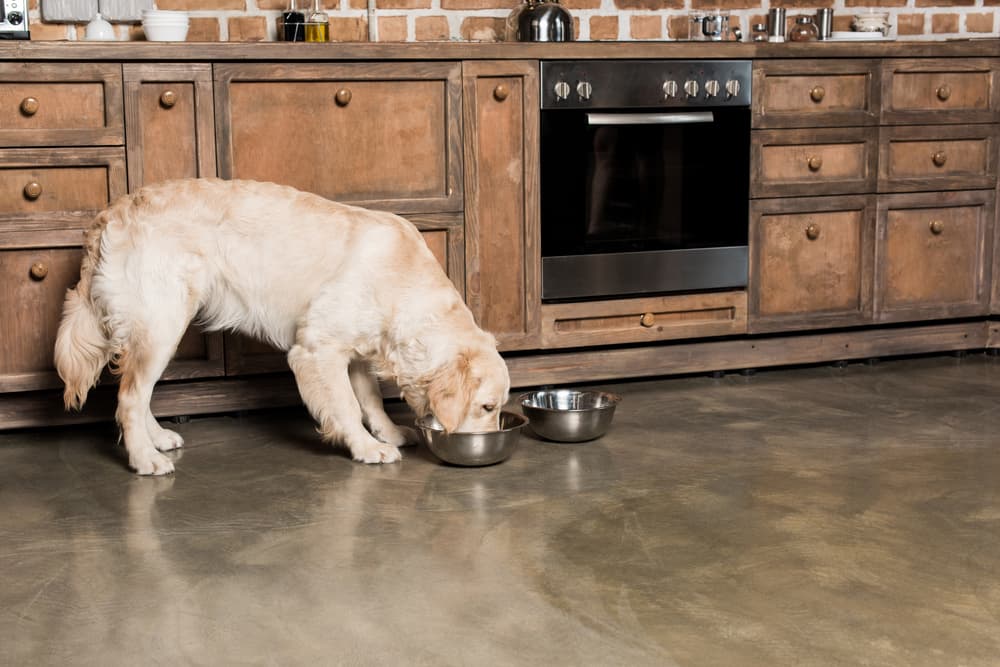
When it comes to taking care of your dog’s good health, being proactive is key. Here are some ways to support your dog’s gut health intentionally.
Feed your dog a healthy diet
“A balanced and nutritionally complete diet is essential for maintaining good gut health in dogs,” says Caos. “Ensure your dog’s food contains high-quality ingredients, including appropriate levels of fiber, proteins, and beneficial nutrients.”
In addition, probiotics and prebiotics can be a healthy addition to your dog’s balanced diet.
Probiotics are live organisms found in fermented foods like yogurt, kefir, and cheese. These “good” bacteria are essential to maintaining the balance of a healthy microbiome.
Prebiotics come from ingredients like apples, bananas, green vegetables, and pumpkin. Prebiotic fibers are the “food” that helps nourish the beneficial probiotic organisms in your dog’s gut.
Ask your veterinarian if dog food with probiotics would benefit your pup. Purina ONE offers a variety of formulas designed to support digestive health, such as Purina ONE +Plus Digestive Health formula with added probiotics and Purina ONE SmartBlend Everyday Nutrition with Microbiome Support and prebiotic fiber.
As always, Caos recommends talking with your veterinarian about the suitable diet for your dog’s specific needs.
Consider adding an immune support supplement
Like people, dogs may benefit from an immune support supplement, such as ION Gut Support for Pets. It contains just three ingredients – humic extract from ancient soil, purified water, and silicon. Because it is all-natural and backed by science, pet parents can feel good adding it to their dog’s water.
Busy dog moms and dads will appreciate the liquid format, which can be dispensed before, during, or after meals. ION translates to Intelligence of Nature, which also helps support your dog’s digestion, vitality, and kidney support.
Avoid sudden dietary changes
If you do decide to switch to a dog food with microbiome-boosting benefits, remember to do so gradually.
“Dogs have sensitive digestive systems. Sudden changes in their diet can disrupt the balance of their gut microbiome and lead to digestive upset,” says Caos. “When transitioning to a new food, do so gradually over several days, mixing the new food with the old food in increasing proportions.”
Once your dog has completely switched to the new diet, watch for signs that show whether or not it’s benefitting your dog’s gut health.
According to the manufacturer, Purina ONE formulas with Microbiome Balance help balance gut bacteria in 28 days. Try it for yourself to see what else Purina ONE can do for your pet, like excitement around mealtime, shiny coat, a strong immune system, and more.
Make sure your dog stays fit
In addition to what your dog eats, regular exercise also contributes to healthy digestion. Remaining active helps to stimulate the gut and can also help manage your dog’s weight, which is essential for overall health.
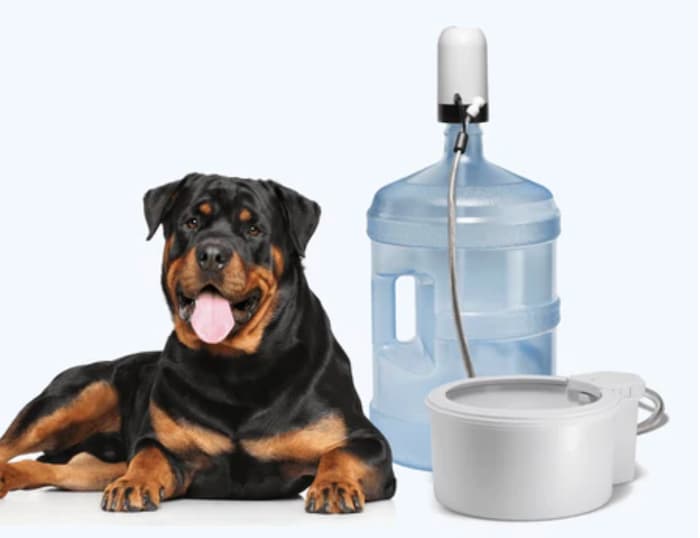
Keep your dog hydrated
“Sufficient water intake is important for maintaining proper gut health in dogs,” Caos explains. “Ensure your dog has access to fresh and clean water at all times. In some cases, adding moisture to your dog’s diet, such as through wet food or adding water to dry food, can also help with hydration.”
One of the easiest ways to ensure proper hydration with access to clean, filtered water is with the Always Full pet water bowl. A system like Always Full takes the hassle out of refills by keeping the bowl fresh and full, so your pup always has water that’s worth drinking. This is a win-win for both pet parents and dogs who will never face an empty water bowl again.
Manage your dog’s stress level
Reducing stress can help support your dog’s gut health. High stress levels can disrupt the gut microbiome, so try to minimize major changes in your dog’s environment and ensure they have a safe, comfortable space.
Avoid toxins in your household
Caos cautions against exposing your dog to potential toxins, such as certain plants, household chemicals, or medications that can disrupt gut health. If ingested, these harmful substances can be toxic and harm your pooch’s gut.
As responsible pet parents, it’s our duty to prioritize our dogs’ gut health for a long and happy life. That requires a multi-faceted approach, focusing on proper care, diet, and exercise. Choosing a premium dog food designed to promote a healthy gut, like Purina ONE +Plus Digestive Health Formula, can make a significant impact on your dog’s overall vitality.
According to Caos, each dog is unique, as is the complex balance of their gut microbiome. If you have concerns about your dog’s health — gut or otherwise — be sure to consult with a vet who can provide advice based on your individual dog’s needs.
This is sponsored content produced in partnership with PetSmart. The author received compensation from PetSmart for their services in writing this article.

